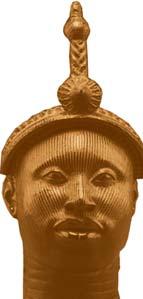
MONDAY, NOVEMBER 10, 2025


MONDAY, NOVEMBER 10, 2025
THE United Kingdom has issued a new travel advisory, warning its ci zens against visi ng several parts of Nigeria due to worsening insecurity, violent crimes, terrorism and kidnappings.
In the latest update published on its official website, GOV.UK sighted by OSUN DEFENDER, the Foreign, Commonwealth and Development Office (FCDO) said insecurity is spreading across the country, with incidents of kidnapping and intercommunal clashes recorded in nearly all regions.
The advisory urged Bri sh na onals in Nigeria to exercise extreme cau on, maintain a high level of security awareness and ensure they have con ngency plans in place.
According to the FCDO, Bri sh ci zens should avoid all travels to Borno, Yobe, Adamawa, Gombe, Katsina and Zamfara States, ci ng a “high
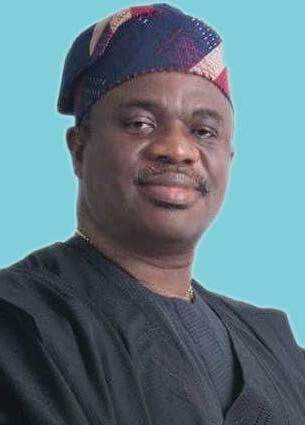
and increasing threat from Boko Haram and Islamic State West Africa Province (ISWAP), especially around transport hubs, religious centres, and large gatherings.”
The statement also warned that humanitarian workers and infrastructure have become prime targets for terrorists and criminal gangs, adding that violent attacks are now extending beyond rural areas.
The UK further advised against all but essen al travel to Bauchi, Kaduna, Kano, Kebbi, Jigawa, Sokoto, Niger, Kogi, Plateau, and Taraba States, as well as the outer suburbs of Abuja, no ng that violent crime involving firearms has spread closer to the city centre.
It also cau oned that occasional protests in Abuja could turn violent, urging residents and visitors to monitor local media, avoid large gatherings and comply with instruc ons from security agencies.
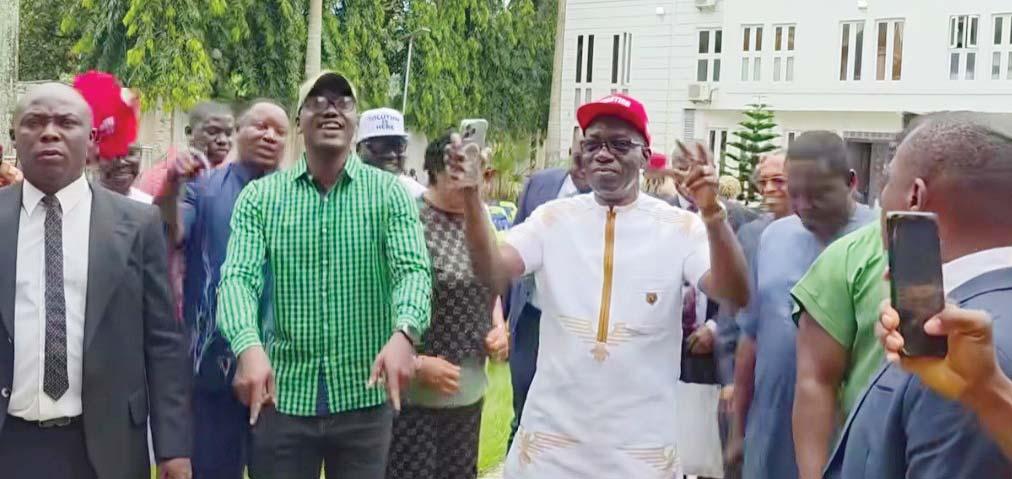
Kazeem Badmus
THE Presidency has come under fire from Nigerians online following its claim that terror-related deaths in the country have dropped by 81 per cent since 2015.
Many Nigerians who reacted to the statement described it as a joke taken too far.
The backlash trailed a post on the government’s official X (Twi er) handle on Sunday, with ci zens ques oning the data and accusing authori es of being detached from the grim reality of daily killings, kidnappings and armed a acks.
One user, @BayoAdemola, wrote: “People can’t travel from Abuja to Kaduna without fear.
Which country recorded an 81% drop? Because it’s not Nigeria.”
Another, @Iam_MaryOkon, said: “Farmers are being slaughtered, schoolchildren kidnapped, and villages burned. Stop mocking our pain with sta s cs.”
User @DejiSpeaks added, “The only thing that dropped is government accountability. This regime measures peace by press releases, not by facts on the ground.”
Similarly, @NaijaObserver commented, “When over 200 people are kidnapped in a single week, claiming security has improved is an insult to vic ms.”
For @OlaOfIbadan, the government’s statement
“shows how disconnected the Presidency is from the streets,” urging authories to “fix insecurity, not manipulate figures.”
In the statement that drew the outrage, the Presidency claimed that Nigeria has recorded major gains in its counterinsurgency campaign, citing over 13,000 terrorists neutralised and 124,000 fighters and family members who surrendered to the military in the past year.
It also said about 2.1 million internally displaced persons have returned home, while 124 terror suspects have been convicted since 2024; though many Nigerians insist the figures do not reflect the escala ng wave of kidnappings and killings na onwide.
MONDAY, NOVEMBER 10, 2025
Yusuf Oketola
THERE was tension in Ikire, headquarters of Irewole Local Government Area of Osun State, following a fresh outbreak of violence between supporters of the Peoples Democra c Party (PDP) and the All Progressives Congress (APC) ahead of the 2026 governorship elec on, leaving one person dead.
The renewed clash, which occurred on Saturday, November 7, 2025, reportedly claimed the life of a young man, Adesile Seebu, said to have been shot during a confronta on between rival polical supporters.
The Peoples Democra c Party (PDP) accused one Akinkunmi Alabi, popularly known as Ojuyobo; a member of the AMBO campaign team of APC governorship hopeful, Bola Oyebamiji of masterminding the killing.
In a statement signed by its Director of Media, Oladele Bamiji, PDP described the incident as a deliberate assault on the peace of Ikire, alleging that Ojuyobo, who was previously declared wanted for poli cal violence in 2023, had resurfaced and was opera ng freely with the protec on of influen al poli cal figures.
The ruling party also expressed concern that the suspect was recently seen during an official visit of a federal agency head to Irewole/ Isokan area, where residents were allegedly harassed and assaulted by poli cal thugs.
Reac ng swi ly, APC dismissed the allega on as false and mischievous, accusing the PDP of a emp ng to mislead the public
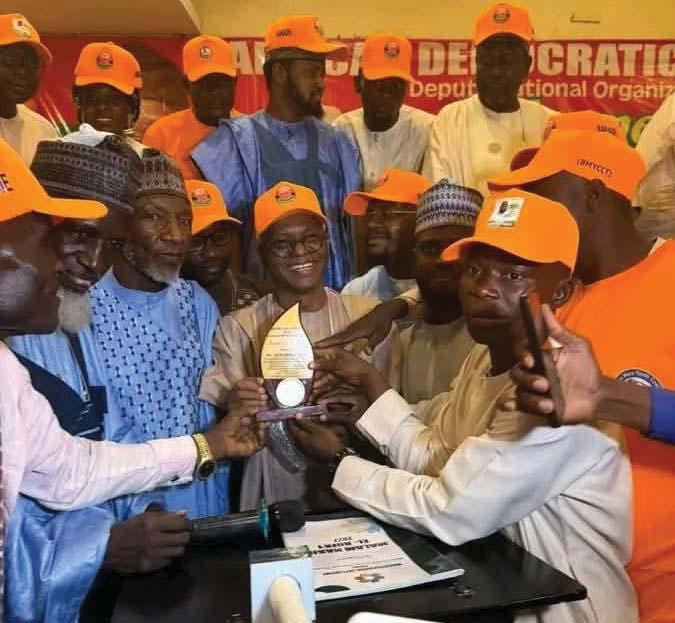
cies.
Francis Adekunle, Ado-Ekiti
DR. Wole Oluyede has emerged as the winner of the Peoples Democra c Party (PDP) governorship primary elec on in Eki State, polling 279 votes to defeat Funso Ayeni who scored 239, while the only female aspirant, Funmilayo Ogun, got 17 votes.
Another aspirant, Peter Obafemi, stepped down before vo ng, declaring support for Oluyede.
Chairman of the PDP Primary Committee, Senator Ibrahim Dankwambo, declared Oluyede winner, describing the exercise as peaceful and transparent.
In his acceptance speech, Oluyede hailed the outcome as a collec ve victory for the party and promised to “restore hope, rebuild trust, and reclaim Eki from misrule.”
However, controversy trailed the process as Mrs. Funmilayo Ogun alleged manipula on of the delegates’ list used for the primary.
She accused some party leaders of removing authen c delegates and inser ng names of individuals who never obtained nomina on
forms, calling the act shameful and undemocra c.
Ogun, who claimed her own name was deleted from her ward’s delegate list, said the manipula on was targeted at frustra ng her ambi on as a woman, vowing to challenge the process legally if the na onal leadership fails to intervene.
She urged INEC to reject any process not based on the list it observed during the October 20 ad-hoc congresses.
Suppor ng her claim, PDP Local Government Chairmen’s Forum leader, Aare Oluyemi Ajanaku, described the delegate list controversy as wor-
risome, warning that such manipula on could divide the party ahead of the 2026 elecon.
Despite the uproar, Eki PDP Chairman, Hon. Tunji Odeyemi, lauded the conduct of the primary and appealed to all aspirants to remain united, saying the elec on had produced a credible candidate capable of defea ng the APC in the coming poll.
While Oluyede called for unity and reconcilia on, Ogun insisted that her struggle represents a fight for fairness, transparency, and gender inclusion, declaring that no woman has ever been elected governor in Nigeria and that it is me to change the narra ve.
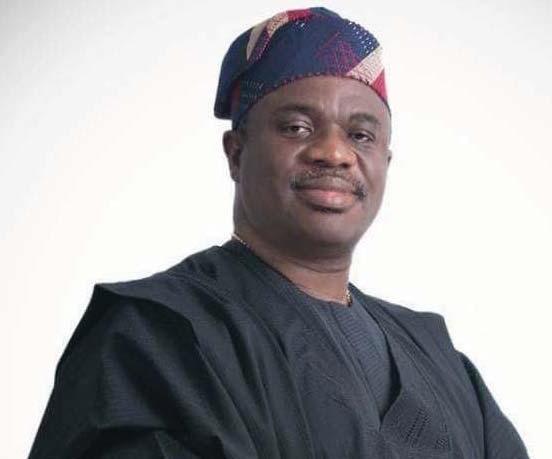
•Mallam Nasir ElRufai connects with the Emir of Katsinan Gusau, Alhaji AbdulKadiri Ibrahim, Amidst a sea of gratitude and future pledges in Zamfara on Saturday
community event.
Lawal maintained that neither Oyebamiji nor members of his AMBO Movement were involved in the killing, describing PDP’s claim as a failed propaganda aimed at maligning the aspirant’s image.
He added that some PDP loyalists had already been arrested in connecon with the a ack and were under police inves ga on.
gated by PDP thugs who a acked APC supporters during a
The latest incident has heightened poli cal tension in Ikire and surrounding communi es, raising fears of escala ng violence as the 2026 governorship race draws nearer.
RESIDENTS of Inisa, in OdoO n Local Government Area of Osun State, have decried the absence of government presence in their community, saying they have yet to benefit from the dividends of democracy.
Speaking at the 34th Inisa Day celebra on on Saturday, community leaders said most of the town’s infrastructure was built through communal efforts, not government support.
They called on both the federal and state governments to come to their aid.
A chie ain of the All Progressives Congress (APC), Alhaji Shuaib Oyedokun, said Inisa’s growth has been driven by unity and self-help. He lamented that all secondary schools and health centres in the area were built by residents, while roads remain in poor condi on.
Oyedokun, a former Deputy Naonal Chairman of the PDP, said Inisa has one of the largest popula ons in
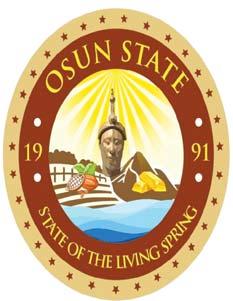
Osun but has not benefited from state or federal projects. He appealed for the establishment of ter ary ins tu ons and be er road infrastructure in the community.
Corroborating him, a former Vice Chancellor of Osun State University, Professor Labode Popoola, said individuals have been solely responsible for most physical projects in the town. He noted that while the community remains resilient, government assistance is minimal.
Popoola, who added that although the people occasionally receive support from government, urged authori es to complement the community’s efforts in sustaining its development.

IT is profoundly disturbing that as a result of the dismantling of the post second World War, consensus have now to become unse ling. Last week, the President of the Republic of South Africa who also doubles as the current chairman of the G2O club of the richest countries set up a commi ee on widening income dispari es world wide and within countries. That Nigeria is not part of that body tells its own story which is best le for another day.
Income Inequality is bound to get worse, the Projec ons about jobs crea on as well as sustainably with the advent of Ar ficial Intelligence is terrifying and there will be consequences centering around social stability. This will also pose ques ons about the stability of democra c state and the social consequences will be pronounced.
The scenario for Nigeria is dire. So far it has been jobless growth, we have a roaring stock
“To create sustainable jobs in Nigeria we must begin with widening financial inclusion. Those outside mostly in the informal sector must be incorporated and patient capital must be forced to upscale small businesses as The Economist newspaper recently observed in a widely qoted editorial”
exchange and Banks recording record results without even half transla on into the crea on of jobs. Even the Banks are using contract staff.
To create sustainable jobs in Nigeria we must begin with widening financial inclusion. Those outside mostly in the informal sector must be incorporated and pa ent capital must be forced to upscale small businesses as The Economist newspaper recently observed in a widely qoted editorial. They are correct. Without upscaling there will be no mass Aggregaon of capital and skills leading to the crea on of new jobs.
Nigeria must also have a genuine war against poverty which will be all encompassing and under the oversight of civil and not poli cal society.
The fixa on with Finabcialism must also end. Ironically the current railed against the short term ism of Finanancialism in the book he co authored with Brian Browne a decade ago. We have to go back to long term capital of the kind that created sustainable jobs in the past and induced genuine social capital ensuring genera onal wealth.
Those offering an alterna ve in Nigeria and elsewhere must recall the campaign ba lecry of former United States VP Al Gore when he ran unsuccessfully for President in 2000 it is “ The people versus the powerful.” He is right and we will always be on the side of those who put the people first.

By Sola Fasure
A false analogy
FOR some me now, there has been a sustained a ack on churches and especially on pastors. Cri cs o en draw a false analogy — that while factories are closing down, more churches are springing up.
The unstated implica on of this fallacy is that churches are somehow responsible for the closure of factories, especially when a former warehouse or industrial building becomes a place of worship.
But this reasoning is deeply flawed and misdirected.
Why Factories Close Down
Factories close down for several reasons, none of which has anything to do with the church or pastors.
First, inclement government policies and adversarial ins tu ons frequently frustrate economic ac vity.
The policy of allowing the dumping of poor-quality (but cheap), foreignproduced goods has already undermined local manufacturers and weakened industrial growth.
Then there are the unstable exchange rates, high interest rates, and inconsistent fiscal policies that send bad signals and create uncertainty for investors.
Add to that the extor on by police, customs and regulatory officials, which inflates produc on costs and makes local goods less compe ve.
Furthermore, the lack of innovaon, corrup on, and weak corporate governance in many firms gradually leads to their collapse.
For most part, recruitments into business organiza ons don’t follow raonal logic and merit. Staff are recruited based on nepo sm, slot selling, cult membership, old school network and other irra onal complex.
Then, they face vandalism, robbery a acks, staff kidnapping for ransom and extor on from host communi es.
A lot of them just got fed up and close shop.
None of these factors has anything
“Those who attack the church miss the broader picture. Beyond the pulpit, the church is also a living social and economic organism — one that provides jobs, uplifts communities, and gives moral direction in an age of confusion”
to do with the church or its pastors.
Different Mandates, Different Measures
The mandate of a pastor is simple yet sacred: to win souls and pastor people. When a church grows and new branches are opened, it is not greed — it is success in fulfilling that divine calling.
In the same way, the mandate of an entrepreneur is to build and expand businesses. When factories mul ply, the entrepreneur is succeeding. When factories close down, it signals failure in that area — not the triumph of the church.
So, let us not misdirect our frustraon or aggression.
The Church as an Economic Organism
The church also has an economic dimension that cannot be ignored. Wherever people gather, economic ac vi es naturally emerge.
When a church is built, architects, masons, carpenters, painters, electricians, and suppliers find work. Churches also employ people — pastors, administrators, accountants, janitors, security personnel, maintenance staff, and musicians.
In many cases, the number of paid workers per square metre in a church facility is higher than in a comparable secular establishment.
The Bigger Picture
Publisher – Moremi Publishing House Ltd.
Asst. News Editor – Yusuf Oketola
Asst. Features Editor – Kazeem Badmus
Deputy Photo Editor – Shola Aderinto
Deputy Graphics Manager – Zainab Olalere
Those who a ack the church miss the broader picture. Beyond the pulpit, the church is also a living social and economic organism — one that provides jobs, upli s communi es, and gives moral direc on in an age of confusion.
Produc on Controller – Petkola Taiwo Ibitowa
OSUN DEFENDER is published by Moremi Publishing House Limited, Behind Oranmiyan Building, Gbodofon, Off Gbongan Road, Osogbo, Osun State.
ISSN : 0794-8050
Telephone : 0809-301-9152
Website : www.osundefender.com/index.php e-mail : osundefenderhq@gmail.com osundefenderbank@gmail.com
All correspondence to the above email addresses. Analysing What’s
Blaming the church for factory closures is therefore not only intellectually lazy; it is a misdirec on of frustra on. The problems of the economy lie elsewhere — in policy failures, corrup on, and lack of innova on — not in the preaching of the gospel, opening more chapels or the pastors becoming more successful. They are not mutually exclusive.
•Fasure, a

MONDAY, NOVEMBER 10, 2025 VOL. 20 NO 59 www.osundefender.com, email: osundefenderbank@gmail.com
NEVER in the history of Nigeria’s often antagonis c poli cs has one man been so maligned by so many, everywhere and all the me. Bola Ahmed Tinubu is so hated, so resented, that it is hard to find a historical parallel.
Our analysts have spent the past three months traveling across Nigeria and engaging with ci zens from a wide range of backgrounds, including traders in Kano, elites in Kaduna, students in Nsukka, professors in Calabar, professionals in Lagos, farmers in Benue, civil servants in Abuja, ar sans in Onitsha, and members of the diaspora from London to Atlanta, in order to understand the roots of this deep animosity.
What we discovered is that the resentment toward President Tinubu is not monolithic; it is shaped by a mix of regional grievances, economic frustra ons, poli cal disillusionment, and personal percep ons of his character, leadership and legacy.
Some see him as the embodiment of a broken poli cal order, while others view him as a man of flawed character whose methods and alliances have come to symbolize the moral compromises, corrup on, and mismanagement that define Nigerian poli cs and career poli cians.
Yet beneath the outrage lies a complex narra ve that reveals as much about the evolving nature of poli cal legi macy in Nigeria as it does about the man himself. To understand the depth of this sen ment, one must look beyond abstract theories of governance and turn to the lived experiences of ordinary Nigerians, whose daily struggles give tangible form to this poli cal discontent.
Tinubu’s name evokes anger in the markets of Aba, Onitsha, Kano, and Lagos, where traders curse the policies that emped their stalls and strangled their profits. It s rs frustra on among farmers in Borno and Bauchi, who can no longer ll their fields in safety or afford the tools to survive, and deep disillusionment among the rank and file of the armed forces in Abuja and Kaduna, who feel betrayed, underpaid, and abandoned.
It breeds bi erness in the streets of Sokoto, Enugu, Ibadan, and Jalingo, where hunger has become a daily companion, and despair in the corridors of power, where even allies whisper their doubts in private.
The cumula ve effect is a na on gripped by exhaus on and disappointment. Every policy seems to produce more pain than progress, every promise more disappointment than hope. Whether in Ibadan, Zaria, Bauchi, Calabar, or Owerri, the men on of
“But Nigerians must be prepared and vigilant. Every election season brings familiar threats to democracy: intimidation at the polls, vote buying, suppression, manipulation of counts, and the misuse of institutions meant to guarantee fairness. These dangers are not new, but they can no longer be ignored”
Tinubu’s name is met with a sigh, a curse, or a weary shake of the head. His name has become shorthand for hardship, a symbol of how far hope has fallen and how deeply trust has been betrayed.
President Tinubu s ll has me to change course and restore faith in his leadership, but he shows no sign that he will. The well of ideas has run dry, and the na on waits, weary and disillusioned.
Despite repeated a empts, the administra on did not respond to requests for comment on this analysis report by the me of publica on.
But why is he a pariah?
Before delving into the reasons, let us first look at the long and ever-growing list of Tinubu’s enemies. These are all those who, through the impact of his leadership or lack thereof, have come to see him as their adversary, the vic ms of his poli cs and policies, not his chosen foes. For each, the cause of their animosity tells a sad story of disappointment, decep on, conceit, broken promises, and sha ered faith in his presidency.
First: The People
Over 200 million impoverished Nigerians have borne the full weight of Tinubu’s policy failures and absence of compassion. From subsidy removals that have turned daily life into daily struggle, to infla on that devours salaries (if you’re lucky to have a job) before payday, to nosebleed unemployment that has denied millions of our young people any means of livelihood, the people feel deceived.
Once promised renewed hope, they now live with renewed hunger. To them, President Tinubu’s policies are poison, the toxin that has claimed the lives of their children, wives, and husbands through starva on, banditry, and preventable deaths caused by the collapse of affordable health care.
Second: The Northern Elites
Once the backbone of every ruling coali on, they now feel alienated and outmaneuvered. Yet it was they who put Tinubu in power. His cold poli cal calculus and perceived neglect of Northern priori es have fractured the old alliance. The Northern elites, long accustomed to influence and deference, now feel displaced by a new power center they neither understand nor control.
The chicken has come home to roost, and the Northern elites do not like what they see. They feel betrayed and are increasingly determined to see Tinubu removed from power through any means available within the poli cal system.
Third: The Southeasterners
As expected, the Southeast remains
both alienated and excluded. Once again, its poli cal aspira ons have been met with polite indifference and symbolic gestures of inclusion from the Tinubu administraon, much like those of its predecessors.
Under Tinubu, however, the region faces not overt hos lity but something more subtle and corrosive: benign neglect. Appointments are largely tokenis c, development projects are scarce, and na onal a en on is flee ng. Tinubu, many in the Southeast have concluded, holds no substan ve regard for the region.
For a people whose history is marked by unfulfilled promises and enduring aliena on, this presidency feels like another cruel repe on of the past, a con nua on of a system that demands their enterprise, taxes, and votes but denies their voices and dreams.
What they see is not partnership but exploita on; not belonging but calculated sidelining. To them, Tinubu’s government is not merely distant; it is deliberately indifferent. And like their Northern counterparts, many Igbo elites can hardly wait for the day Tinubu is escorted out of Aso Rock.
Fourth: Disillusioned Southwesterners Anger against Tinubu cuts across tribal lines, as the suffering is universal. Even within his own communi es, the hardship is no less severe. The only ones thriving are his close circle of cronies, loyalists, and praise-singers. Meanwhile, the vast majority of poor Yorubas endure the same struggles as their counterparts in Kano, Umuahia, Uyo, and Port Harcourt.
Many now call for Tinubu’s removal, feeling deeply betrayed and disillusioned by what they see as his poor leadership and lack of empathy for their suffering. A growing number have vowed never to vote for him again.
Fi h: The Former Business Owners
They are the casual es of economic turbulence under Tinubu’s administra on. Across the country, small and mediumsized enterprises have collapsed under the weight of erra c exchange rates, soaring fuel, transporta on, and electricity costs, and regulatory policies that have suffocated private ini a ve.
The entrepreneurial dynamism that once defined Nigeria’s urban centers has been eroded by an environment that appears to reward poli cal patronage and entrenched monopolies rather than innova on and compe on.
For many of these former business owners, Tinubu has become the embodiment of their loss, the face of a system that destroyed their livelihoods and dreams. Some speak of him not merely with disap-
pointment, but with a bi erness that borders on contempt.
Sixth: The Farmers Insecurity has turned their cherished farmlands into graveyards. Across the country, farmers flee their homes under the constant threat of armed kidnappers and marauding gangs. No farming community feels safe under this administra on.
Many blame Tinubu, who had promised to keep their families and livelihoods secure. Food scarcity, once a looming fear, has now become a harsh reality. The government’s failure to protect the rural economy has le farmers feeling abandoned and betrayed. For them, Tinubu’s presidency represents not only unfulfilled promises but the collapse of a way of life they once took for granted. They too want him out.
Seventh: The Families of the Dead Hospitals without equipment and medicine, roads that are death traps without rescue services, and infla on that has made life-saving drugs una ainable have created a silent army of grieving families from Aba to Zaria. Their hatred is quiet but profound. They mourn loved ones who did not die from illness alone, but from the slow violence of governmental neglect
For them, every empty hospital bed, every fatal delay, and every unaffordable prescrip on stands as an indictment of President Tinubu and a government that has forgo en its most basic duty: to protect life. They would rather see Tinubu replaced than watch another life lost to the failures of his rule.
Eighth: The Rank and File of the Armed Forces
The military, once stoic and loyal, now whispers discontent. Low morale, poor welfare, and the feeling of being used as pawns in poli cal games have fermented resentment against the administra on. Rumors swirl in the barracks, whispers of coups and interven ons, the language of a disillusioned soldiery.
In their frustra on, they see a government that demands loyalty but offers neither honor nor care. They too have begun to ques on their allegiance, wondering whether the na on they serve s ll serves them in return. The bayonets are out, waiting for the moment the emperor stumbles.
Ninth: The Youth
The genera on that led #EndSARS and dreamed of a new Nigeria feels robbed once again. With no jobs, no opportunies, and no faith in leadership, they see Tinubu not as a father figure but as a relic of a failed past.
Their anger simmers on the streets and explodes on social media, where every hardship finds a hashtag. They want Tinubu gone but remain deeply skep cal of the current opposi on, convinced that none among its ranks can be trusted to bring genuine change.
Yet beneath their cynicism lies a restless energy, a willingness to rewrite the na on’s story if given a leader who speaks their language, understands their pain, and embodies the future they were promised. If such a figure were to emerge, the youth are not only willing but ready to ignite a poli cal youthquake in 2027 and remove Tinubu from the presidency.
Tenth: The Interna onal Investors
They came with op mism but are leaving with losses.
•Read full article on www.osundefender.com
•Nnaoke Ufere, PhD can be reached via the African Mind Journal through www. africanmind.org
OSUN DEFENDER is published by Moremi Publishing House Limited, Behind Oranmiyan Building, Gbodofon, Off Gbongan Road, Osogbo, Osun State. All correspondence to the Asst. News Editor, YUSUF OKETOLA, Telephone: 0809-301-9152. ISSN: 0794-8050. Website: www.osundefender.com Email: osundefenderbank@gmail.com, osundefenderhq@gmail.com